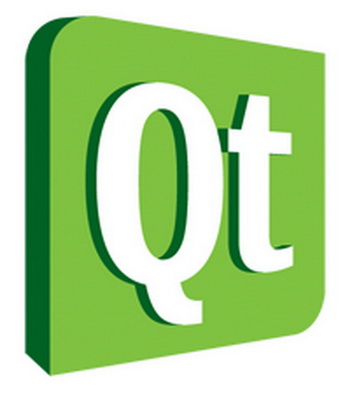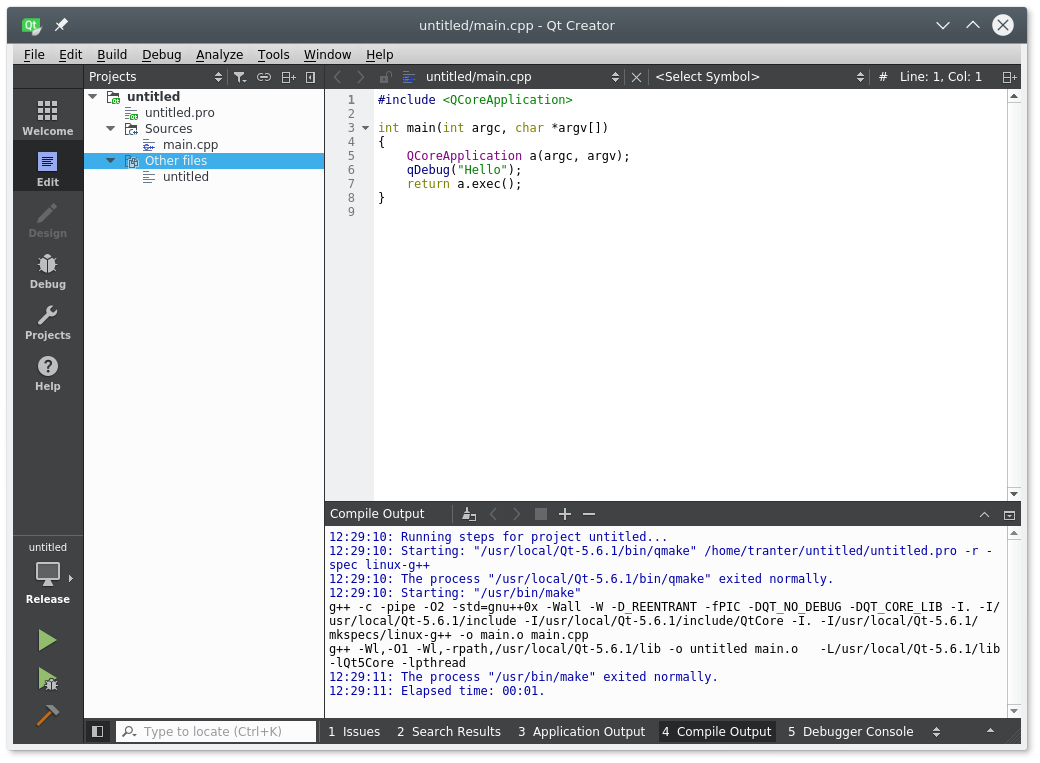
So let’s start installing QTCreator on Ubuntu. QTCreator is related to C++ development but supports other programming languages such as Python and C#. Since its conception, QTCreator does not intend to rival other IDEs like Eclipse or Netbeans, but on the contrary to serve as a gateway to QT development. It is also designed to make C++ development of the Qt application faster and easier. QTCreator is a lightweight, open-source framework that integrates seamlessly with many QT developer needs. There is no better way to take advantage of QT than by using QTCreator. But also, applications known as VLC use it. Many large applications use QT, such as the Plasma desktop environment and its applications.

It is thought in the beauty and uniformity of the elements, as well as in the correct execution of the same ones. QT is a framework of libraries to make graphical user interfaces. Also, add some small configurations so you can start as soon as possible.
#Qt creator offline installer how to#
With the goal of creating fabulous applications with QT, is that in this post, I will teach you how to install QTCreator in Ubuntu 20.04 / 18.04. In fact, Plasma and its applications are built with Qt. However, many of these applications require graphical components and in Linux, QT is one of the most respected. Some of them already veterans like Fortran, Java, C++ or newer ones like V, Python, PHP, Go, or Rust. With this in mind, Ubuntu in its repositories has many applications to develop on different platforms and with numerous language support. Let’s say that many developers who start their adventure in programming, require quality applications but also free. I would very-much like to know where I might find such an expert who can give me a complete "horse's mouth" answer to my question.Linux is perhaps the best operating system for the development of applications for its stability and price. I don't know any more than this, sorry, so if you feel you need confirmation from a Qt expert please wait. I believe that I actually have a logon account (is that the same one which is required to be active/ask questions on this forum?) so that is not a problem. Okay, so it would appear that something fundamental has changed in the installation packages since I installed it last time that makes it difficult to fully complete an offline installation?įinally, I believe there have been recent changes at Qt Company which mean that downloads now require a logon account, which may make offline installing trickier. We recommend you use the Qt Online Installer for first time installations and the Qt Maintenance Tool for changes to a current install. I think you need to go to and pick the Qt for your platform. Many said in Offline not an expert on this, just trying to help you. I just want to make it work and understand how to configure it in future so that I don't require assistance. I don't care which compiler I use, whether it's minGW or MSVC - either/or. Microsoft Visual Studio Community (containing MSVC) I have seen this question arise often, but none of the example seem to pertain to my exact scenario. Is there a clear, concise, simple and easily-followed user guide on how make these two work together?

If I installed mingGW first, and then the offline installer of Qt Creator, then why am I still getting "No valid kits found."? I then clicked on "Qt Creator" and the screen shot in the original post shows what I found, and the exact file that I downloaded. This is exactly where I went (as I noted in my original post.) If you want the MinGW version used to build Qt, then you have to use the Qt installer which will provide both Qt Creator and MinGW.Ī separate thread with another gentleman seemed to suggest that there was, and I could have sworn that the last time I tried, I stumbled across an offline installer that was exactly that, but cannot find it.Ĭan you please point me to this "Qt installer which will provide both Qt Creator and MinGW"?Īs for the offline installers they are available here.

There's no "Qt Creator offline installer with MinGW".


 0 kommentar(er)
0 kommentar(er)
